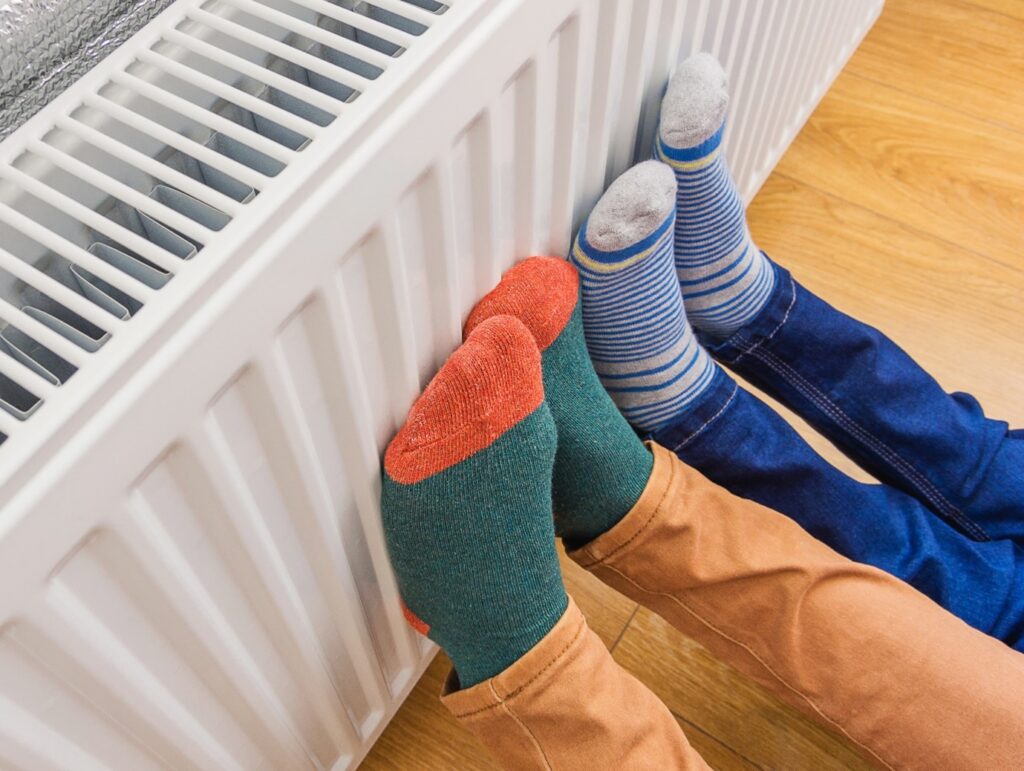Feel as if your radiators are taking longer than usual to heat up properly? If you hear gurgling noises whenever you’ve got your central heating on, it’s probably time to bleed your radiators. Air bubbles form over time in your radiators when the air doesn’t circulate quite as well as it should be doing. If your radiators feel cold at the bottom, it’s a sure sign that it’s time to give them some TLC.
Now that it’s likely we’ll be spending a little more time at home again this winter, having some basic home maintenance tips and tricks up your sleeve will make sure everything stays running a little more smoothly. You don’t want to be caught out in the middle of freezing temperatures with faulty radiators or a broken boiler – and, as more than 72% of us are spending more on our energy bills during our time at home, bleeding your radiators should mean you can save a few pennies too.

Step One: Preparation is Key
While bleeding your radiators isn’t quite as sinister as the name would suggest, there is a small chance that things could get messy. Having a towel to hand before you get started will make sure you can catch any drips, and get the job done and dusted as soon as possible. Radiator water may be discoloured, so catching any spillages on old towels will save you a clean job up later, and the potential cost of a new carpet too.
When it comes to replacing your radiators, vertical radiators Ireland are a popular choice due to their sleek design and efficient heat distribution. They are particularly well-suited for modern homes with limited space, as they can be installed vertically to maximize floor space. Additionally, vertical radiators Ireland are known for their durability and require minimal maintenance, making them a practical choice for homeowners looking for a reliable heating solution.
Step Two: Have a Radiator Key Handy
A radiator key is just one of those things that you’ll only use every few months, but still need to have lying around the house. You should be able to find a radiator key in most DIY shops, or even on trusty Amazon.
Using radiator keys to bleed your radiators also helps you to remove the possibility of your heating systems rusting. The combination of air, water, and metal can be a risky one, allowing the inside of your radiator to slowly corrode. The bad news is, if this happens and isn’t nipped in the bud, you could be looking at the price of a new radiator, or even worse, a whole new boiler.
If you’re in the market for a new boiler, BOXT has you covered. With a convenient ‘find my boiler’ tab, BOXT help you find the perfect boiler for your needs, location, and budget and offers you a convenient next-day delivery service too.
Step Three: Turn Your Central Heating Off
This step is essential for keeping safe while you bleed your radiators. If you don’t turn your heating off before you begin the process, you risk your radiators being too hot to handle, burning your hands, or even boiling water bursting out of your pipes. Leaving your central heating on also has consequences for the long term health of your radiators. You could run the risk of letting your pressure run too low, and damaging your entire heating system as a result.
Step Four: Releasing the Air
You’ll be able to tell which of your radiators need bleeding because of the cold patches you’ll feel on them. Once you’ve established the radiators and are ready to bleed, use your radiator key to turn the valve anti-clockwise. This is the tricky bit: you’ll need to listen to the air hissing out, and then turn the key back clockwise as soon as you see any water running out of the valve. Be careful not to turn the key too tight, though. If you screw it back on too tightly, you could end up damaging the valve permanently.
Step Five: Test Your Systems
Finally, once you’ve mopped up any excess water, it’s good practice to check your central heating is all running smoothly. To do this, turn your radiators back on and check for cold spots on each. If there your radiators feel warm all over, you’ve successfully released the trapped air bubbles and saved a few pennies on your heating bill too.
It’s important also to be testing the pressure of your heating system to make sure everything’s as it should be in that respect too. It’s normal for your water pressure to be a little lower than usual once you’ve bled your radiators, but if you see significantly low numbers, it’s a good idea to get the experts involved. No one wants to run the risk of long term boiler damage, or even worse, the prospect of having to be kitted out with an entirely brand new boiler.


1 comment
As I am looking at your writing, 온카지노 I regret being unable to do outdoor activities due to Corona 19, and I miss my old daily life. If you also miss the daily life of those days, would you please visit my site once? My site is a site where I post about photos and daily life when I was free.